Step into the world of the 2Days-Bonsai & Sencha Tea Experience, where the artistry of bonsai and the tranquility of Sencha tea converge. Participants are invited to enjoy a cultural journey that celebrates the refined pastime of the literati.
Explore the intricate techniques of bonsai cultivation and the delicate flavors of Sencha tea, experiencing a harmonious blend of skill and mindfulness. This unique experience offers a serene escape into the elegance of Japanese traditions, promising a delightful exploration of nature’s beauty and ancient practices.
Key Points

- Bonsai and Sencha tea embody centuries-old cultural traditions and philosophical depth.
- Zen philosophy’s simplicity and harmony reflected in both art forms.
- Sencha tea’s ceremonial origins complement the mindfulness and focus of bonsai cultivation.
- Careful techniques in bonsai pruning and Sencha tea brewing create an artful, meditative experience.
It's also worth checking out some other tours and experiences nearby.
Historical Significance of Bonsai Art
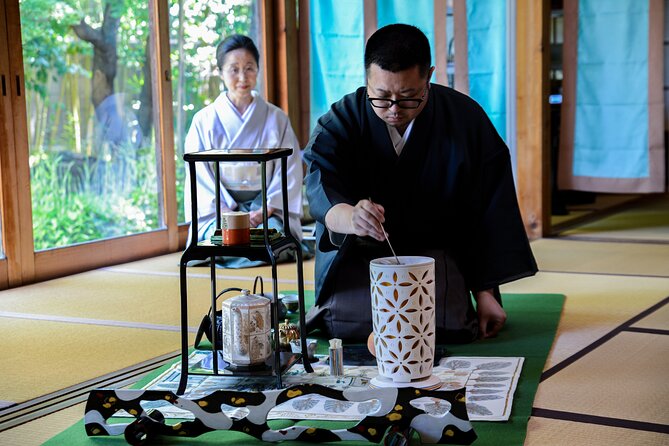
The historical significance of bonsai art dates back centuries, showcasing a timeless tradition of cultivating miniature trees with precision and care. Bonsai evolution has seen this art form evolve from its origins in China to Japan, where it has had a profound cultural impact.
The meticulous Sencha rituals, a traditional Japanese tea ceremony, have also influenced the art of bonsai, emphasizing the importance of harmony and balance.
In modern trends, bonsai has become a global phenomenon, with enthusiasts from various cultures embracing this ancient practice. The art of bonsai continues to captivate individuals worldwide, bridging the gap between tradition and contemporary expression.
Zen Philosophy and Bonsai Connection
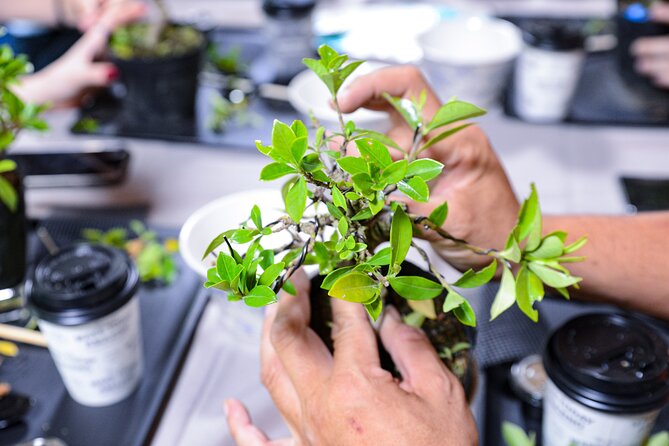
Exploring the connection between Zen philosophy and bonsai reveals a deep intertwining of spiritual principles with the art of cultivating miniature trees. Zen philosophy emphasizes simplicity, naturalness, and harmony with the environment, which are mirrored in bonsai aesthetics.
Bonsai artists strive to capture the essence of a tree in a small form, reflecting the Zen principle of finding beauty in simplicity. The meticulous care and attention required to shape a bonsai tree echo the Zen practice of mindfulness and focus on the present moment.
Through bonsai, practitioners can experience a profound connection to nature and a sense of inner peace, in line with the teachings of Zen philosophy.
Sencha Tea: Origins and Traditions
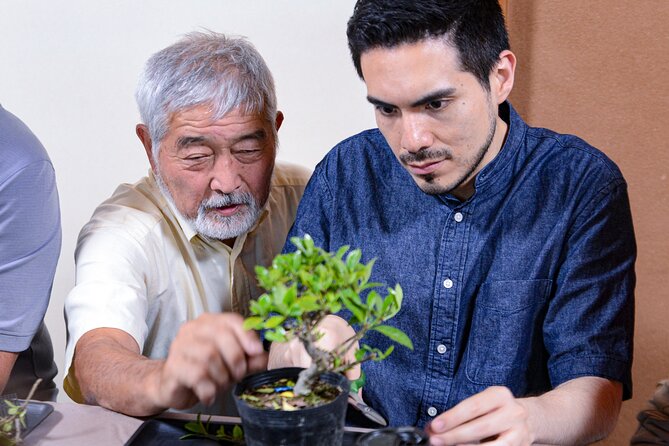
Originating in Japan, sencha tea holds a prominent place in traditional tea ceremonies and everyday consumption.
-
Origins: Sencha tea dates back to the 18th century in Japan and is known for its grassy and slightly sweet flavor profile.
-
Brewing Methods: To brew sencha tea, one typically uses water at around 70-80°C and steeps the leaves for about 1-2 minutes for optimal taste.
-
Ceremonial Significance: Sencha tea is often enjoyed during Japanese tea ceremonies for its refreshing taste and cultural significance.
-
Varietal Diversity: There are various types of sencha tea, each offering unique flavors and characteristics based on factors like region and processing methods.
Bonsai Techniques and Care Tips
Discover essential bonsai techniques and care tips to nurture these miniature masterpieces into thriving works of art. Bonsai pruning is crucial to maintain the shape and size of the tree, promoting new growth and overall health.
When it comes to watering, ensure the soil is slightly moist but not waterlogged, as overwatering can harm the roots. Choosing the right bonsai soil is vital for proper drainage and root health.
Plus, placing your bonsai in a spot with adequate sunlight is essential for photosynthesis and growth. Remember, each bonsai species may have specific care requirements, so research and understand the needs of your particular tree to ensure it thrives.
The Art of Sencha Tea Preparation
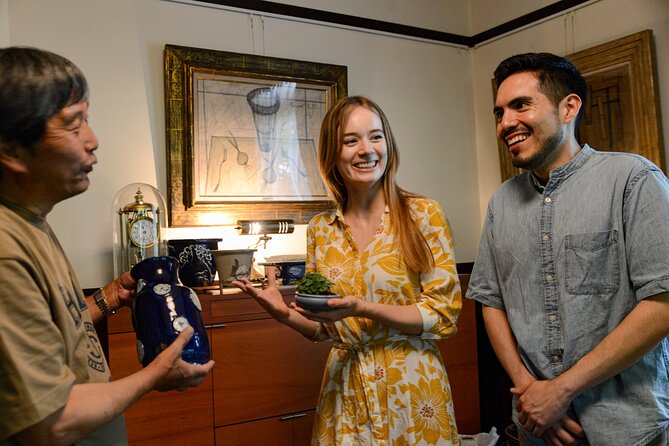
Moving from the intricate art of bonsai care to the realm of tea culture, one can now appreciate the meticulous craft behind preparing Sencha tea. Sencha tea preparation involves a delicate balance of tradition and innovation, combining centuries-old practices with modern trends.
Here are some key aspects to consider:
-
Quality Leaves: Using high-quality, fresh tea leaves is essential for a flavorful brew.
-
Water Temperature: Boiling water can scorch the delicate leaves; opt for slightly cooler temperatures around 75-80°C.
-
Steeping Time: Steep the leaves for about 1-2 minutes to extract the optimal flavors without bitterness.
-
Pouring Technique: Embrace the traditional ceremony by pouring the tea in gentle, circular motions to evenly distribute the flavors.
Bonsai and Sencha Tea: Harmonizing Practices
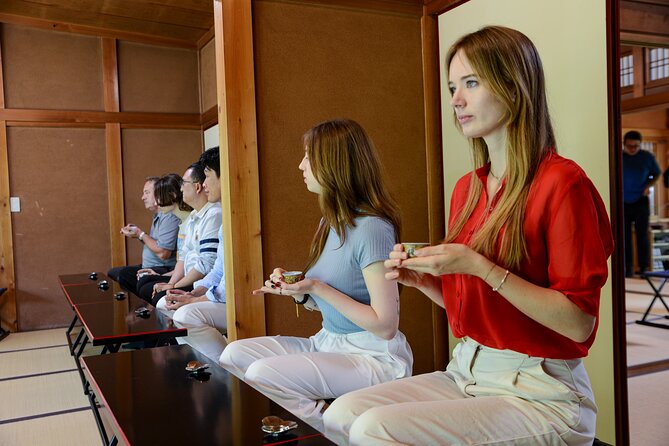
Harmonizing the ancient art of bonsai with the delicate practice of Sencha tea brewing creates a serene and balanced experience for enthusiasts. This union of miniature tree cultivation and the preparation of traditional Japanese tea fosters a sense of harmony in nature and allows for individual artistic expression to shine through. Check out the table below for a quick comparison between bonsai and Sencha tea:
| Aspect | Bonsai | Sencha Tea |
|---|---|---|
| Origin | Japan | Japan |
| Focus | Cultivating trees | Brewing tea |
| Key Ingredient | Trees | Green tea leaves |
| Time Investment | Long-term commitment | Instant preparation |
| Aesthetic Appeal | Visual beauty | Sensory experience |
Here's a few more nearby tours and experiences we think you'll like.
- Grand Sumo Tournament Tokyo – Osaka – Nagoya
- Experience Japanese Calligraphy & Tea Ceremony at a Traditional House in Nagoya
- Nagoya Street Food Walking Tour of Osu
- Walking Small-Group Nagoya City Tour
- Specialties of Nagoya Food Tour
- Nagoya/Takayama/Shirakawa/Kanazawa Tourphotoshoot by Professional Photographer
Common questions
Are There Any Age Restrictions for Participating in the 2days-Bonsai & Sencha Tea Experience?
Age restrictions are not applicable for participating in the 2Days-Bonsai & Sencha Tea Experience. The experience welcomes all ages. Check the participation rules for detailed information. Enjoy this pastime without worrying about age limitations.
Can Participants Bring Their Own Bonsai Trees or Tea Utensils to the Experience?
Participants are encouraged to appreciate the provided bonsai arrangement and tea ceremony utensils. Bringing personal belongings is not recommended to maintain workshop etiquette. Enjoy the experience fully by immersing in the shared materials and ambiance.
Is There Any Specific Dress Code or Attire Recommended for the Experience?
For the experience, there’s no specific dress code. Participants should wear comfortable attire. Embrace culture and follow basic etiquette. Enjoy the experience without worrying about formal dress requirements. Immerse in the moment!
Are There Any Opportunities for Hands-On Practice With Bonsai Techniques or Tea Preparation During the Experience?
During the experience, participants can engage in hands-on practice with bonsai techniques and tea preparation. Opportunities abound to immerse in these activities, making the experience interactive and enriching for all involved.
Will There Be Any Souvenirs or Take-Home Items Provided as Part of the Experience?
Visitors won’t find souvenir options or take-home gifts included in the experience. It focuses on bonsai and tea appreciation, without additional keepsakes. The focus is on learning and enjoying the pastime of the literati, not on material takeaways.
Not for you? Here's more of our most recent tour reviews happening neaby
- Private Transfer From Nagoya Chubu Airport (Ngo) to Shimizu Port
- Private Transfer From Nagoya Cruise Port to Nagoya Hotels
- Nagoya to Nagoya Int Airport (NGO) – Departure Private Transfer
- Private Half-Day Tour to Atsuta Jingu Nagoya
- Nagoya Custom Full Day Tour
- Private Transfer From Nagoya City Hotels to Nagoya Cruise Port
- Nagoya One Day Tour With a Local: 100% Personalized & Private
- Japan Railway Station Shared Arrival Transfer : Nagoya Station to Nagoya City
- Shirakawago and Takayama 2 Days Tour From Nagoya
- Private Transfer From Kanazawa Cruise Port to Nagoya City Hotels
- Guided Half-day Tour(AM) to Nagoya Castle & Tokugawa Museum and Garden
- 1Day Private Shirakawago and Takayama With Public Bus From Nagoya
- Private Transfer From Nagoya Airport NKM to Shimizu Cruise Port
- Pub Crawl in Nagoya
- Private Transfer From Shimizu Port to Nagoya Chubu Airport (Ngo)
Sum Up
To sum it up, the 2Days-Bonsai & Sencha Tea Experience offers a budget-friendly opportunity to take in the elegant traditions of bonsai cultivation and Sencha tea brewing. Participants can learn about the historical significance of bonsai art, the Zen philosophy behind it, and the origins of Sencha tea.
By harmonizing these practices, you can find a serene escape from the modern world and appreciate the beauty of Japanese culture.






